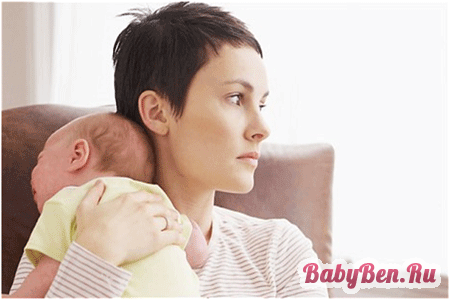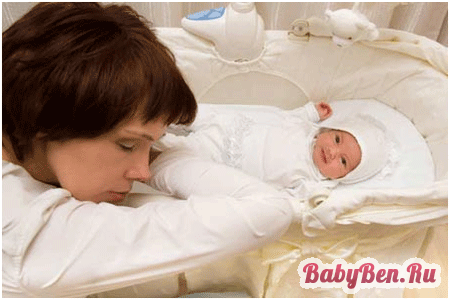
Postpartum depression is observed in women of reproductive age, which are subject to increased sensitivity, which develops into a number of physical and psychological characteristics. Depression in such women begins to be darkened at the end of the last semester of pregnancy, and often weakness, passivity, and increased anxiety are felt. This symptoms are aggravated by the time of birth activity and causes unimaginable fear and anxiety in a woman. Symptoms of this nature do not allow a newly -minted mother to completely enjoy the presence of a newborn baby next to childbirth.

The content of the article
Causes of postpartum depression
There are a considerable number of factors provoking the state of depression. Among them, they distinguish:
- social;
- biological;
- interpersonal;
- psychological depression.
Frequent causes of depression after childbirth can serve:
- oppressed condition on the eve of pregnancy;
- housing problems;
- lack of funds;
- lack of support from relatives;
- absence or lack of help from her husband;
- severe pregnancy;
- later conception;
- lack of live communication;
- early departure from work, decree.
Many signs of depressiveness can be easily mistaken for a stressful state that can occur during the birth of the baby. In this case, it is necessary to be examined by a doctor who observed pregnancy.
Signs can appear from the first days after childbirth. They are characterized by such manifestations:
- A woman cannot force herself to fall asleep, even if the baby is sleeping.
- Change of emotional background, causeless tearfulness, irritability.
- Often you can observe the loss of appetite, panic attacks, neuralgia.
- Thoughts of a negative nature, neurotic seizures.
If these features are detected, it is urgent to visit a doctor without delaying the disease.

Symptoms of postpartum depression
The following most common symptoms of postpartum depression are determined:
- obsessive states, lability;
- pressure surges, tremor;
- feeling of constant anxiety;
- lack of appetite, headache;
- dereal, arrhythmia;
- panic, sadness, a feeling of loneliness;
- tearfulness, irritability;
- depression, mental instability.
Often women with depression begin to visit obsessive thoughts in which they feel unable to be a good mother for their child. A woman cannot fulfill her maternal duties with such symptoms, and more often falls into a panic, experiences an irresistible fear of the future.
If a woman feeds the baby with her chest, then, being in a depressive state, she may disappear milk, and the child will be forced to eat mixtures. The most common symptom of the depressive state after childbirth is that a woman has no desire to seek help from a specialist.
The woman is visited by a sense of helplessness and shame because of the top that she is not able to devote time to the child and give him the necessary care. The worries of everyday nature for caring for the baby bring a woman to a tearful state in which her hands are lowered. With the inaction and abandonment of the help of specialists, a young mother may develop more severe postpartum depression, in which she will have neither the strength nor desire to do conventional affairs.

How to deal with postpartum depression
First of all, a woman with depression needs the help of a therapist who will help to identify the cause of the postpartum inhibited state. With the help of psychological trainings, a specialist will save a woman from negative thoughts, teach how to cope with the role of mother and are not afraid to bear responsibility for her life and for the life of the baby.
Small physical activity and constant communication, stay in crowded places will also help. It is very important that during this period relatives and friends show more understanding to the woman, pay due attention, care, and help in caring for the baby. Only the coordinated actions of loved ones will help to return the normal emotional state of the newly -made mother, because it is almost impossible to cope with depression alone.
